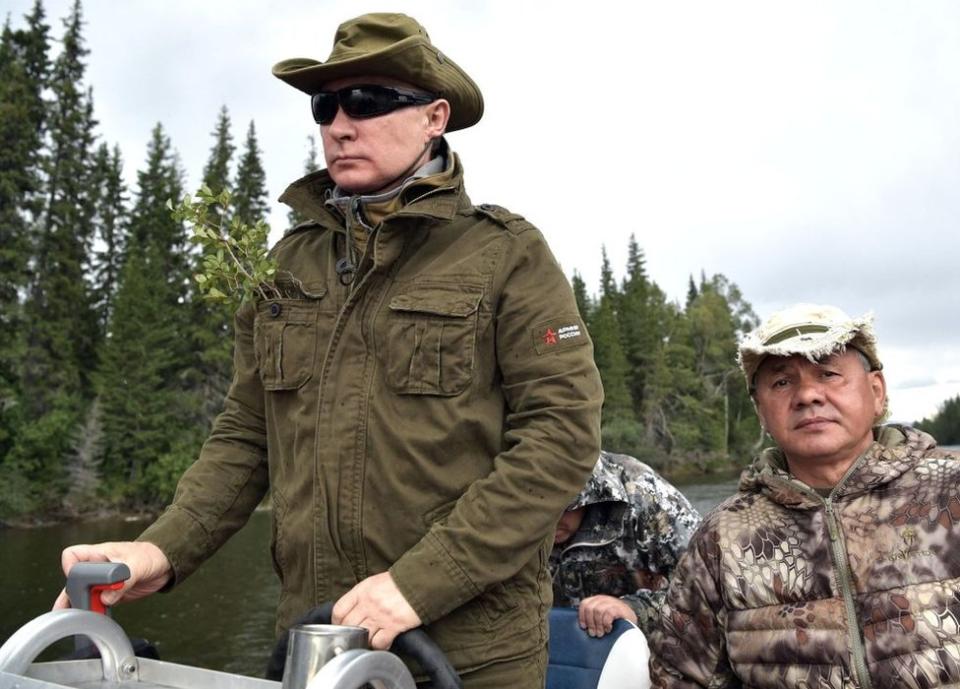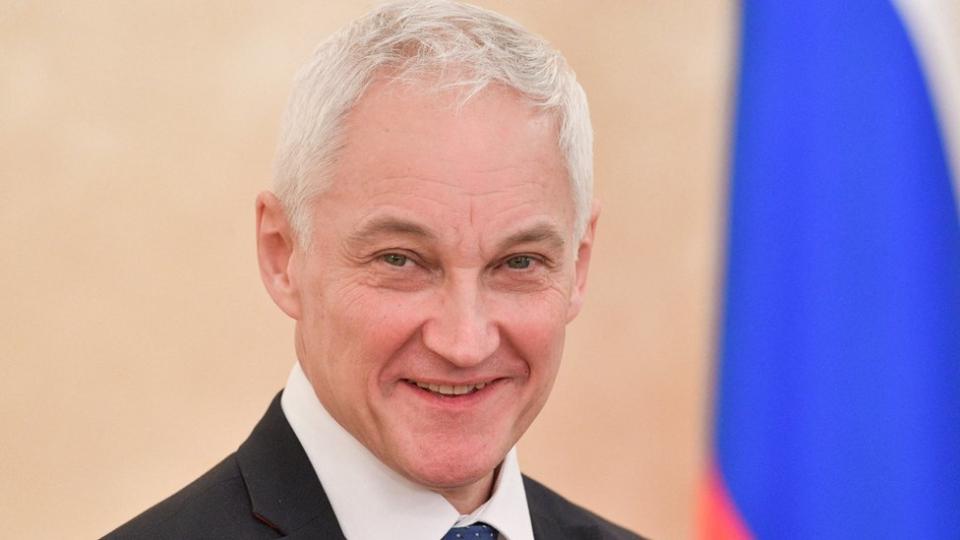Russian President Vladimir Putin is set to replace his long-standing ally Sergei Shoigu as defence minister, the Kremlin has announced.
The 68-year-old has been in the role since 2012 and is to be appointed the head of Russia’s Security Council.
Papers published by the upper chamber of the Russian parliament said Mr Shoigu will be replaced by Deputy Prime Minister Andrei Belousov.
Mr Shoigu has played a key role in Russia’s war with Ukraine.
Russian government papers show Mr Putin wants Mr Shoigu to take over from Nikolai Patrushev on the powerful security council. It is not yet clear what Mr Patrushev’s new post will be.
Mr Shoigu has close links with President Putin, often taking him on fishing trips in his native Siberia.
He was given the defence portfolio despite having no military background, which rankled with some of his top brass.
A civil engineer by profession, Mr Shoigu rose to prominence as the head of the emergencies and disaster relief ministry in the 1990s.
He often looked out of his depth as defence minister, especially after Russia’s full-scale invasion of Ukraine more than two years ago, BBC Europe analyst Danny Aeberhard says.


In 2023, Mr Shoigu became embroiled in a public feud with Wagner mercenary chief Yevgeny Prigozhin over Russia’s conduct of the war.
Prigozhin, who led a short-lived mutiny against Moscow, accused Mr Shoigu of being a “dirtbag” and “elderly clown” in audio messages that went viral.
The mercenary chief died in a plane crash while flying from St Petersburg to Moscow in August 2023. The Kremlin denied it was to blame.
Mr Shoigu’s suggested replacement, Mr Belousov, is an economist with little military experience and will come as a surprise to some.
But in the view of other analysts, the move indicates that President Putin is seeking to align the Russian economy more closely with the war effort.
Kremlin press spokesman Dmitry Peskov said the proposed appointment of a civilian showed the role of defence minister called for “innovation”.
He said Russia was becoming more like the Soviet Union in the mid-1980s, when a high proportion of GDP went on military spending.
As a result, it was necessary to make sure that military expenditure was better integrated into Russia’s overall economy, he added.
“The one who is more open to innovations is the one who will be victorious on the battlefield,” he said.


BBC Russia editor Steve Rosenberg said the replacement of Mr Shoigu did not come as a surprise, since his position had become weaker and there had been talk for some time that he could lose his job. Russia’s campaign in Ukraine has been plagued by military setbacks and big losses in men and materiel.
Having an economist as defence minister reflects the changing priorities of the Kremlin, Steve Rosenberg says. The Russian economy is on a war footing now, so it is vital that the defence ministry has enough money to fund the war.
According to unnamed government officials quoted by independent Russian website The Bell, Mr Belousov is seen as a “hard-line defender of the state, who believes that Russia is encircled by enemies”.
Like President Putin, he is close to the Russian Orthodox Church. He is said to be a martial arts enthusiast – as is President Putin – who practised karate and the Russian combat sport sambo in his youth.
Before becoming deputy prime minister, he worked for several years as an aide to Mr Putin. Before that, he was economic development minister.
He was reportedly the only member of the president’s economic entourage to support the annexation of Crimea in 2014.
Mr Putin was sworn in as president for a fifth time on Tuesday after winning Russia’s recent election with 87% of the vote and without facing any credible opponents. He has led Russia since May 2000.
Among cabinet members to keep their positions is veteran Foreign Minister Sergei Lavrov.


